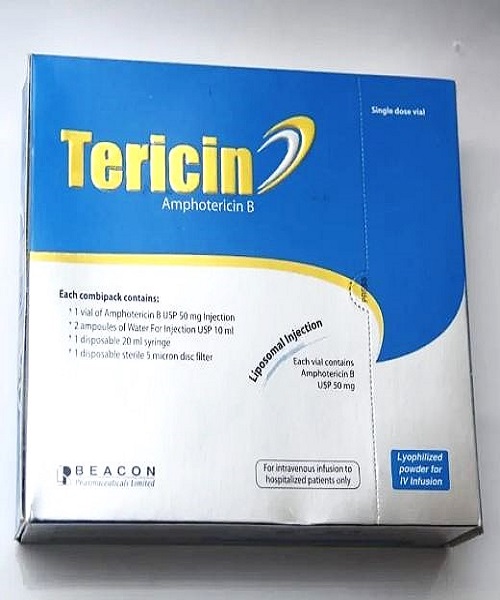Amphotericin B is an antifungal medication used to treat serious and life-threatening fungal infections. It works by binding to ergosterol, a key component of fungal cell membranes, causing membrane disruption and cell death. Amphotericin B is primarily used for systemic fungal infections such as candidiasis, aspergillosis, and cryptococcal meningitis, often in immunocompromised patients. It is typically administered intravenously due to its poor oral absorption. The drug has a known potential for significant side effects, including nephrotoxicity (kidney damage), fever, chills, and electrolyte imbalances. To minimize toxicity, it is sometimes given as liposomal amphotericin B, which may reduce side effects while maintaining effectiveness. Monitoring during treatment is essential to ensure patient safety.
Browse Categories
- Cancer Medicine
- General Medicine
- Allergy & Immune System
- Analgesic Antipyretic
- Anemia & Blood Disorders
- Anesthetics & Neuromuscular
- Antimicrobial
- Bone Formation & Disorders
- Cardiovascular
- Central Nervous
- Cerebrovascular
- Chemotherapy & Immunosuppressants
- Dermatological
- E.N.T
- Endocrine & Metabolic
- Eye
- Gastrointestinal
- Genitourinary
- Homeopathy
- Miscellaneous
- Musculoskeletal
- Respiratory
- Women’s Health
- Vitamins & Supplements
- Care Device
- Surgical Instrument
- Medical
- Laboratory
- Biotech
- Study Accessories
- Test Equipment
- Test Kit



